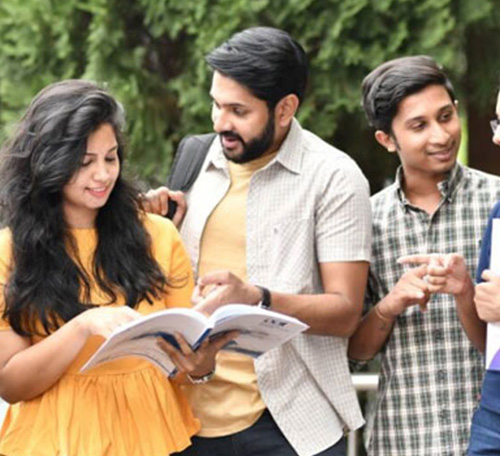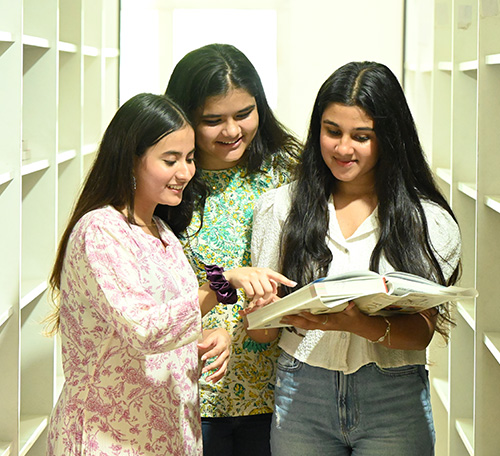- Faculty
- Admissions
- Academics
- Collaborations
- Life at MUJ
- Placements
- IQAC
- Research
- Online Courses
- About Us
- Examination
- News & Events
- IQAC
- NIRF
- Alumni
- Pay Fee Online
- Tenders
- Blog
- Careers
- Contact Us
- Faculty of Science, Technology and Architecture (FoSTA)
- Faculty of Management, Commerce and Arts (FoMCA)
- Faculty of Law (FoL)
- Faculty of Health Sciences
- Teacher Empowerment Centre
- School of CSE (CSE & IT)
- School of CSE (AIML, IoT&IS, CCE, DS and Computer Applications)
- School of Engineering
- School of Architecture and Design
- School of Physical and BioSciences
- School of CSE (CSE & IT)
- Department of CSE
- Department of IT
- School of CSE (AIML, IoT&IS, CCE, DS and Computer Applications)
- Department of AIML
- Department of IoT & IS
- Department of CCE
- Department of Data Science & Engineering
- Department of Computer Applications
- School of Architecture and Design
- Department of Architecture
- Department of Fashion Design
- Department of Interior Design
- Department of Interaction & Communication Design
- School of Physical and BioSciences
- Department of Biosciences
- Department of Chemistry
- Department of Mathematics & Statistics
- Department of Physics
- School of Arts
- School of Management, Commerce and hotel management
- School of Management, Commerce and hotel management
- Department of Business Administration
- Department of Commerce
- Department of Hotel Management
- Tapmi School of Business
- School of Law
- School of Law
- Department of Law
- School of Pharmaceutical Sciences
- School of Allied Health Sciences
- School of Pharmaceutical Sciences
- School of Pharmaceutical Sciences
- School of Allied Health Sciences
- Department of Psychology
- Indian Students
- International Students
- Admission Contact
- Disclaimers
- Induction & Orientation Program 2024

- Undergraduate
- Postgraduate
- Ph.D.
- Online Courses
- Teaching Faculty
- Time Table
- Academic Rules & Regulations
- Academic Calender and List of Holidays
- Architecture & Design
- Arts & Humanities
- Basic Sciences
- Business & Commerce
- Computer Applications
- Design & Art
- Engineering
- Hospitality & Tourism
- Journalism & Communication
- Law
- Pharmaceutical Sciences
- Allied Health Sciences
- Faculty of Science, Technology, and Architecture
- B.Arch(Bachelor of Architecture)
- Faculty of Management, Commerce & Arts
- B.A. (Hons) Economics
- B.A. (Hons) English
- BPES (Bachelor of Physical Education and Sports)
- B.A. Liberal Arts
- BFA (Applied Art)
- Faculty of Science, Technology, and Architecture
- B.Sc. (Hons) Physics
- B.Sc. (Hons) Chemistry
- B.Sc. (Hons) Mathematics
- B.Sc. (Hons) Biotechnology
- B.Sc (Hons) Microbiology
- B.Sc (Hons/Hons with Research) Physical Science
- Faculty of Management, Commerce & Arts
- BBA(Hons)
- B.Com (Bachelor of Commerce)
- B.Com (Hons) Accounting
- B.Com. (Hons.) FinTech
- BBA (Business Analytics)
- Integrated MBA
- Faculty of Science, Technology, and Architecture
- BCA (Bachelor of Computer Applications)
- BCA (Hons) (Software Product Engineering)
- Faculty of Science, Technology, and Architecture
- B.Des (Fashion Design)
- B.Des (Interior Design)
- B.Des (User Experience & Interaction Design)
- B.Des (Communication Design)
- Faculty of Science, Technology, and Architecture
- B.Tech (Automobile Engineering)
- B.Tech (Biotechnology)
- B.Tech (Chemical Engineering)
- B.Tech (Civil Engineering)
- B.Tech (Computer Science & Engineering)
- B.Tech in Computer Science and Engineering(IoT and Intelligent Systems)
- B.Tech in Computer Science and Engineering(Artificial Intelligence & Machine Learning)
- B.Tech (Computer and Communication Engineering)
- B.Tech in Computer Science and Engineering(Data Science)
- B.Tech (Computer Science and Biosciences)
- B.Tech (Electrical & Electronics Engineering)
- B.Tech (Electrical and Computer Engineering)
- B.Tech (Electronics & Communication Engineering)
- B.Tech in Electronics Engineering (VLSI Design and Technology)
- B.Tech (Information Technology)
- B.Tech (Mechanical Engineering)
- B.Tech (Mechatronics Engineering)
- B.Tech (Lateral Entry)
- B. Tech Computer Science and Engineering (Cyber Security)
- B. Tech(Robotics and Artificial Intelligence)
- Faculty of Management, Commerce & Arts
- BHM (Bachelor of Hotel Management)
- BBA (Hospitality & Tourism Operations)
- Faculty of Management, Commerce & Arts
- BA(Hons/Hons with Research) Journalism & Mass Communication
- Faculty of Law
- LLB (Bachelor of Law)
- BA LLB (Hons)
- BBA LLB (Hons)
- Faculty of Health Sciences
- Bachelor of Pharmacy
- Faculty of Health Sciences
- B.Sc (Hons) Psychology
- B.A. (Hons) Psychology
- Architecture & Design
- Arts & Humanities
- Basic Sciences
- Business & Commerce
- Computer Applications
- Design & Art
- Engineering
- Journalism & Communication
- Law
- Management
- Pharmaceutical Sciences
- Allied Health Sciences
- Faculty of Science, Technology, and Architecture
- M.Arch (Landscape Architecture )
- M.Plan
- Faculty of Management, Commerce & Arts
- MA (English)
- MA (Economics)
- MA (International Relations)
- MFA (Applied Arts)
- Faculty of Science, Technology, and Architecture
- M.Sc. (Biotechnology)
- M.Sc. (Chemistry)
- M.Sc. (Mathematics)
- M.Sc. (Physics)
- M.Sc. (Food Science & Technology)
- Faculty of Management, Commerce & Arts
- M.Com (Financial Analysis)
- Faculty of Science, Technology, and Architecture
- MCA (Master of Computer Applications)
- M.Sc. (Cyber Security)
- Faculty of Science, Technology, and Architecture
- M.Des (Interior Design)
- Faculty of Science, Technology, and Architecture
- M.Tech in Computer Science and Engineering (Artificial Intelligence & Machine Learning)
- M.Tech (Data Science)
- M.Tech (Structural Engineering)
- M.Tech (VLSI & Embedded System Design)
- M.Tech (Industrial Automation & Robotics)
- M.Tech (Energy Science & Technology)
- M.Tech. (Cyber Security)
- M.Tech. (Computer Science and Engineering)
- Faculty of Management, Commerce & Arts
- MA (Journalism & Mass Communication)
- Faculty of Management, Commerce & Arts
- MBA (Master of Business Admistration)
- MBA (Business Analytics)
- Faculty of Health Sciences
- Faculty of Health Sciences
- M.Sc. Clinical Psychology
- BUSINESS & COMMERCE
- COMPUTER APPLICATIONS
- MEDIA & COMMUNICATION
- ARTS & HUMANITIES
- DEGREE VERIFICATION
- About
- Student Exchange
- Faculty Exchange
- Events
- Collaborations & Partners
- Process Information
- Pathway & Research
- NewsLetter
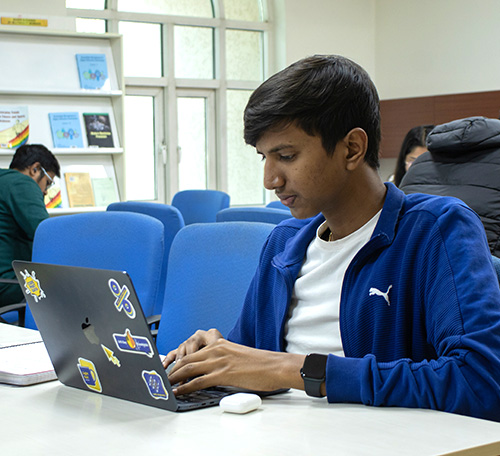
- MUJ Hostels
- Campus Facilities
- Students' Welfare
- Library
- Entrepreneurship Cell
- Others
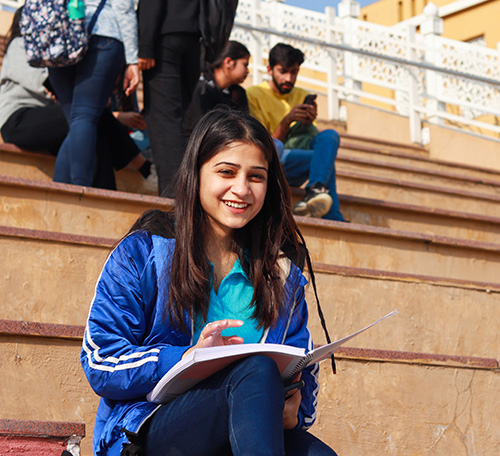
- Overview
- INTERNAL QUALITY ASSURANCE CELL
- Overview
- PhD Program
- Externally Funded Research Projects
- INDUSTRY FUNDED RESEARCH PROJECTS
- Internally Funded Research Projects
- Consultancy Projects
- IPR FILING
- Students Projects
- Central Research Facilities
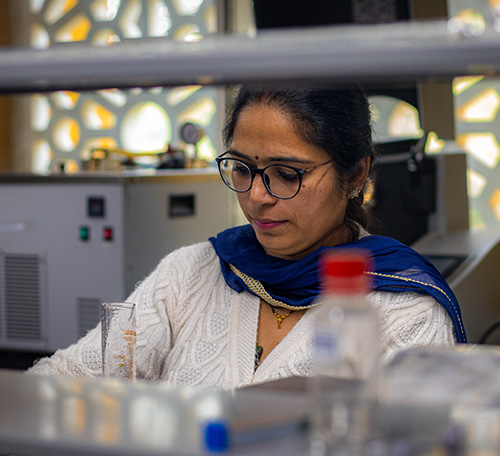
- Business & Commerce
- Computer Applications
- Media & Communication
- Arts & Humanities
- Degree Verification
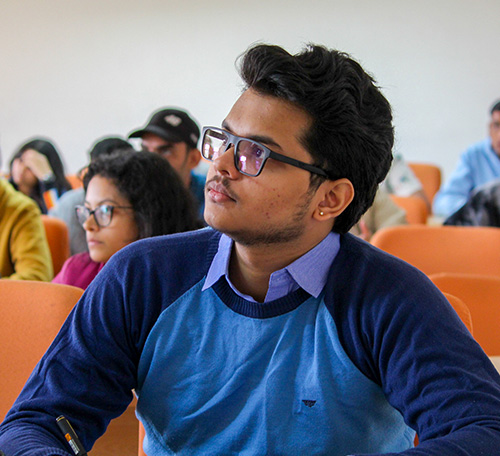
- ABOUT US
- LIBRARY
- NEWS & EVENTS
- CAREERS
- CONTACT US
Search Now
Event Details

International Panel Discussion titled Living Constitutions: Adapting to and Transforming Society in a Dynamic World
FROM 15 Aug 2024 TO 15 Aug 2024
Venue : Online MS Teams @ 6:00 PM
On the occasion of the 78th Independence Day of India, 15th August 2024, an International Panel Discussion titled "Living Constitutions: Adapting to and Transforming Society in a Dynamic World" was jointly organized by Manipal University Jaipur and CHRIST University Lavasa, Pune. The event, held online from 6 PM to 7:30 PM (IST), brought together distinguished professors and legal experts from across the globe to engage in a profound dialogue on the evolution of constitutional frameworks in response to contemporary societal challenges.
The discussion was inaugurated with a welcome address by Prof. (Dr.) Bharti Kumar, Dean, Faculty of Law. Prof. Bharti Kumar highlighted the significance of the topic, particularly in the context of ongoing global transformations. She emphasized that constitutions, as living documents, must continuously evolve to reflect the changing values, norms, and needs of society.
Following the welcome address, Dr. Sonu Agarwal, Head of the Department of Law, provided the opening remarks. Dr. Agarwal underscored the importance of constitutional adaptability in addressing emerging challenges such as digital transformation, environmental issues, and human rights. She expressed her gratitude to the esteemed panelists for their participation and contributions.
The panel discussion, moderated by Mr. Akshaya Kishor, Assistant Professor, featured the following distinguished speakers:
Prof. Edna Raquel Hogemann (Brazil): Prof. Hogemann provided a comparative analysis of constitutional developments in Brazil and other Latin American countries. She focused on the incorporation of environmental rights into constitutional frameworks and the legal mechanisms employed to enforce these rights. Her presentation emphasized the need for constitutions to address ecological challenges to ensure sustainable development.
Prof. Oswaldo Pereira de Lima Junior (Brazil): Prof. Pereira de Lima Junior discussed the evolution of constitutional law in the context of global governance. He examined the role of supranational institutions in shaping national constitutions and the implications for sovereignty and democratic governance. His insights highlighted the delicate balance between global cooperation and national autonomy.
Mr. Sankalp Tyagi (India): Mr. Tyagi explored the digital transformation of society and its impact on constitutional law. He addressed the challenges posed by emerging technologies, particularly in the areas of data privacy and cybersecurity. Mr. Tyagi argued for the need to update constitutional protections to safeguard individual rights in the digital age.
Prof. Giuseppe Di Genio (Italy): Prof. Di Genio offered a European perspective on constitutional changes, focusing on the integration of human rights into national constitutions. He analyzed recent constitutional amendments in European countries aimed at enhancing protections for vulnerable groups, including women and minorities. His presentation underscored the importance of constitutional guarantees for social justice and equality.
